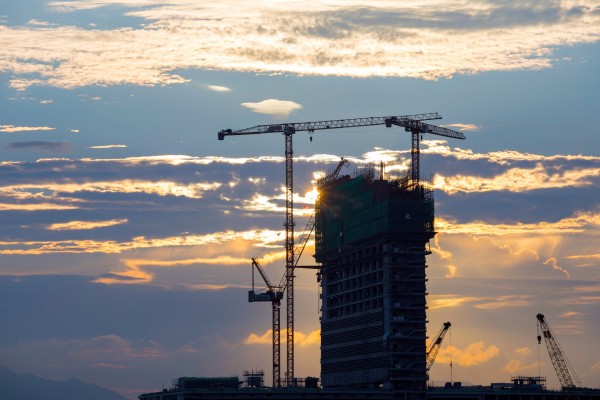
New BUJKA RO Regulation of 2019 Facilitates BUJKA RO Registration through OSS While Posing A New Question
On 13 June 2019, the Ministry of Public Works and People’s Housing (“MOPW”) enacted MOPW Regulation No. 09/PRT/M/2019 on Guidelines of Foreign Construction Services Business Entity (“BUJKA”) Licensing (the “2019 BUJKA Regulation”). This 2019 BUJKA Regulation revokes the previous 2014 BUJKA Regulation (Regulation No. 10/PRT/M/2014) and the regulation on foreign investment (PMA) construction service business entity (Regulation No. 03/PRT/M/2016 as amended by Regulation No. 30/PRT/M/2016). Previously the regulation on BUJKA Representative Office (“BUJKA RO”) and PMA Construction Service Company (“BUJKA PMA”) were separate, but the 2019 BUJKA Regulation now governs both BUJKA RO and BUJKA PMA. In this brief update, our discussion focuses on the BUJKA RO only.
The main purpose of 2019 BUJKA Regulation is to facilitate the licensing of BUJKA RO through the OSS system with SBU (Sertifikat Badan Usaha – Business Entity Certificate) as the commitment to be satisfied. Since the enactment of Government Regulation No. 24 of 2018 on OSS on 21 June 2018, and prior to the 2019 BUJKA Regulation, application for BUJKA RO licensing had been faced with some uncertainties due to the absence of the implementing regulation accommodating the OSS system process (the "Transition Period").
During this Transition Period, BUJKA ROs may have their BUJKA RO license issued by the OSS system but the BUJKA RO license issued during the Transition Period were not yet effective. This was further ascertained when the MOPW held a socialization event on 29 May 2019 (around 2 (two) weeks before the enactment of the 2019 BUJKA Regulation) on how to validate the BUJKA RO license issued during the Transition Period.
Following the socialization event and the enactment of 2019 BUJKA Regulation, the steps required for applying for BUJKA RO license are now (somewhat) clear. However, if we zoomed in to the technical requirements such as the skill/competence requirement for the technical person in charge (PJTBU – Penanggung Jawab Teknis Badan Usaha), the 2019 BUJKA Regulation requires the PJTBU to have Work Competence Certificate of level 9 qualification or ASEAN Architect certificate or ASEAN Chartered Professional Engineer certificate. This is not to be taken lightly since failure to comply with this requirement, may subject the BUJKA RO to blacklisting as the most severe sanction. It is also worth noting that appointing a qualified PJTBU is required in order for the BUJKA RO to obtain an SBU.
The issue is that PJTBU’s competence requirement is currently also regulated under LPJK (the Construction Service Development Board – Lembaga Pengembangan Jasa Konstruksi) Regulation No. 1 of 2015 on BUJKA Registration (the “LPJK Regulation”) and the PJTBU requirement under LPJK Regulation is arguably different compared to the 2019 BUJKA Regulation. The LPJK Regulation categorizes the PJTBU requirements for a BUJKA RO depending on the business classification of the BUJKA RO (i.e. EPC contractor, construction implementation service provider, a construction planner or supervisor).
In addition, the benchmark used under the LPJK Regulation for the PJTBU competence level is not the same as the 2019 BUJKA Regulation. The benchmark (so far relied on by BUJKA ROs to apply for an SBU to LPJK) under LPJK Regulation is madya (medium) level and/or utama (main) level and it is currently unclear on how these will (or will not) translate to level 9 qualification competence certificate required under the 2019 BUJKA Regulation.
Given this, a question arises as to whether the existing BUJKA ROs’ PJTBUs are compliant with the 2019 BUJKA Regulation’s requirement and if not, whether the BUJKA ROs are required to replace their current PJTBUs. Unfortunately, the transitional provisions under 2019 BUJKA Regulation are silent on this matter. It is expected that the MOPW and/or the LPJK should issue a guideline to address this question.
*****
The above is a summary prepared by Solis Advisors – Attorneys and Consultants (“Solis”), an Indonesian based Law Firm. It is only intended to inform generally on the topics covered and should not in any way be treated as legal advice or relied upon when making investment or business decisions. If you have any questions/comments on the matter set out above, or other subject(s) you wish to inquire, please contact your usual Solis contact or email us at consult@solis.consulting.
- LATEST NEWS
-
30/08/2021
Newsletter Solis August 2021: Investment Regulatory Update under BKPM Regulation No. 4 of 2021 -
29/06/2021
Newsletter Solis June 2021: Key-points on the Establishment and Organization of an Individual Company Under MOLHR Reg. No. 21 of 2021 -
27/04/2021
Newsletter Solis April 2021: New Implementing Regulations on Employment in Omnibus Law
